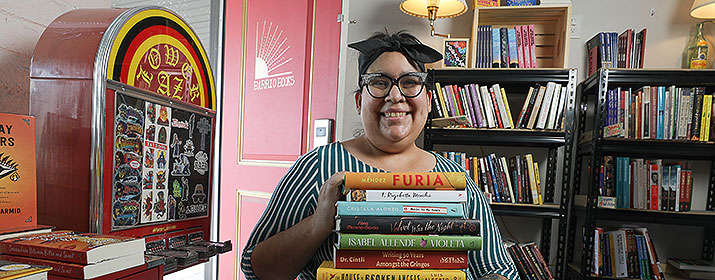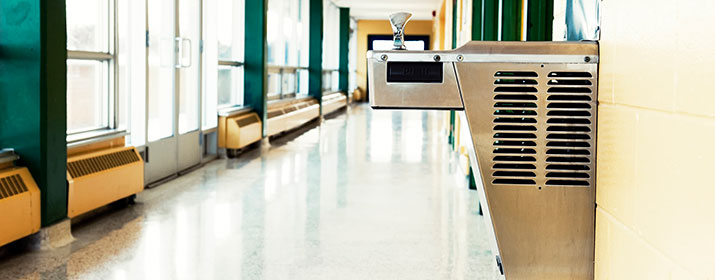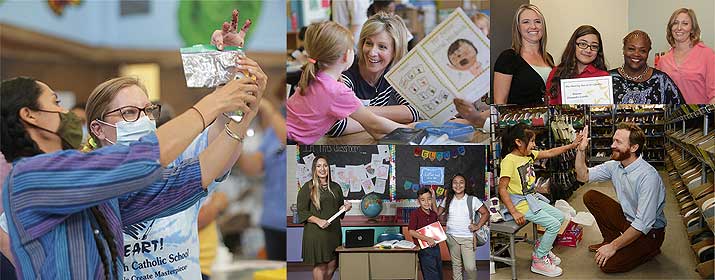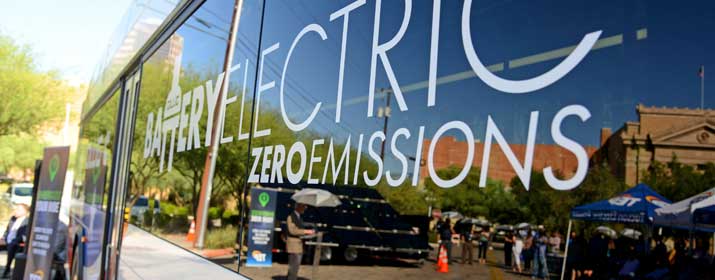
As part of our focus on racial and social equity, TEP is providing continuing support for loans to new and fledgling businesses owned by Black, Indigenous and people of color (BIPOC) community members.
The Community Investment Corporation (CIC) in July opened the second round of applications for loans from the BIPOC Community Managed Loan Fund. TEP originally made contributions to help launch the fund in 2020 and is providing a sustaining contribution this year.
Here are some ways the fund is making a difference for the first round of recipients, who received support in 2021.
Cookin’ Wit’ Cort
After leaving a job as a social worker, Cortnie Smith was looking for ways to pay the bills when she was asked to make healthy meals for a friend of a friend.
That first week in 2019, Smith prepared nine meals and posted pictures on Instagram. Within a month, she was selling 96 meals a week.
That was the beginning of Cookin’ Wit’ Cort, a local catering business that focuses on soul food, healthy meals or whatever the client prefers. Last year, Smith used the CIC loan for catering supplies, including chafers, a griddle and grill, pots and a refrigerator.
After a swift launch, Smith’s business stalled when pandemic hit in 2020, forcing her to briefly take a warehouse job.
“I hated it. At work, I would think, ‘What can I do to get back cooking?’” Smith said. “Then, I thought I could make Soul Food Sundays. For the Black culture, it’s a special day to get together with families. It was a hit.”
Now, Smith largely focuses on catering jobs for private parties, but can also be found at vendor events, offering Sunday, lunch and Thanksgiving specials. Baked mac-and-cheese is her specialty.
Until she learned about the CIC offer, Smith was intimidated by the prospect of seeking a bank loan. The CIC was helpful in going through the process. “It’s like you can have the talent, but there’s a whole other aspect behind a business,” Smith said. “There’s so much more.”
Barrio Books
Syrena Arevalo launched Barrio Books – selling Latino- and Latina-based literature in English and Spanish – as a side hustle while working as a teacher at a charter school.
“There weren’t a lot of books that reflected the kids I had in my classroom,” Arevalo said. “I had a lot of kids who were not avid readers so I tried to get different books that resonated with them.”
When Arevalo left her teaching job because of medical complications, Barrio Books became her main focus. She started mostly as a pop-up vendor at local events, like Cyclovia and Second Saturdays. When she learned that Hotel McCoy was looking for someone to run a bookstore, it seemed like a perfect fit.
Still, getting funds proved difficult. Because of medical debt, Arevalo was unable to qualify for traditional bank loans. “CIC really helped get us to the next level,” Arevalo said. “CIC is an incredible organization. Not only will they help you with your loan, but they also give you a lot of knowledge on how to run a business.”
Now, Arevalo has plans for a bookmobile to continue her mission.
“Barrio Books is a bookstore of the community, representing what Tucson is and what the Tucson southside is, and elevating Latino and Latina representation. It’s a place to get literature that kids and adults can really identify with.”
Fraqtals
Reginald “SwinDoe” Kennedy has played college baseball, toured as a hip-hop artist, acted in movies and videos and created visual art. Now, he’s added new credentials: inventor and entrepreneur.
SwinDoe designed a screenprinting machine and process for his custom-apparel business, Fraqtals. Last year, the CIC loan helped him offset costs to manufacture and market his machines for sale.
SwinDoe got his start selling fingerpainted T-shirts both on the road and in Tucson before he transitioned to providing screenprinting service for others.
“It seems that once you print T-shirts, others want you to do it for them,” SwinDoe said. “Once I realized that could make some pretty good money printing for other people, it became my main focus and career.”
Frustrated with the limitations of large screenprinting machines, he “went to the distinguished school of YouTube” to learn to weld and made his own machine that he can take to print on-the-spot at markets and public demonstrations. He even brought it to a school to teach children.
So far, he’s sold a few of his custom machines while continuing his screenprinting business at the Dunbar Pavilion.
“It’s hard to get funds these days without a proven track record or sales record,” SwinDoe said. “It’s great that this is helping push people forward who have great ideas.”






